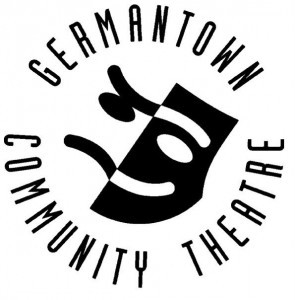On Saturday night, Germantown Community Theatre hosted a successful fund-raising gala and made some difficult, if hopeful announcements. Although the big party was well attended, GCT — the initials are a familiar shorthand for the old one-room schoolhouse-turned-playhouse on Forest Hill Irene — is running dangerously low on funds.
This latest round of dire circumstances are, in part, related to being a smallish arts organization with big ambitions. But board members are also owning up to the theater’s own, more preventable failures — misplaced priorities, a too passive board, and an inability to attract sponsors and cultivate audiences. There were poor leadership decisions, too, and failures to respond rapidly or appropriately to multiple early warnings when things were just beginning to spiral out of control.
To push back against adversity, GCT announced a $300,000 capital campaign designed to target three basic things: debt service, hiring a new executive director, and growing the company’s successful educational programming. The campaign announcement might be less awkward if GCT hadn’t announced a similar fund-raising effort just one year ago, shortly after the hire of now-departed executive director Michael Miles.
According to current board president Bo Adams, that last expansion effort “never really got off the ground.” Money raised for specific things was used to cover day-to-day expenses and payrolls that weren’t always met on time. Debt went unpaid, and the theater struggled.
GCT produces theater at a relatively high level, given the community playhouse’s limited physical resources. Board member Justin Entzminger brags — rightfully so — about multiple Ostrander Awards and the critical and popular success of shows like A Streetcar Named Desire. Those individual achievements haven’t always translated to a consistently strong box office. During the 2016 holiday season, when Theatre Memphis and Playhouse on the Square were packing houses with sugar plumb treats and family spectacles like A Christmas Carol and Peter Pan, GCT’s dark, notably austere production of the 1929 thriller Rope played to empty rooms.
The thing that makes GCT unique — its intimate 110-seat capacity — can also make it something of a tough sell for sponsors whose interests aren’t always purely philanthropic. The small theater has to sell out its entire weekend to do the kind of numbers the Memphis area’s larger playhouses can turn on a better night.
“We’re never going to be able to say we attract in a night or even in a weekend the audience that Theatre Memphis or Playhouse has,” Entzminger says. “But we have a strong relationship with audiences in East Memphis, Collierville, and Cordova. So we can’t speak to quantity but can speak to community and loyalty.”
Entzminger says GCT is serious about its desire to grow audiences, mend tattered relationships, and show a commitment to responsible arts programming and management. “We used a cost reduction strategy for next season,” he says. One slot has been cut from the season entirely, and instead of staging lavish musicals, the company is hoping to find quality low-royalty and royalty-free material. To hedge against future crises, a new committee has been formed to respond to the specific needs of whistleblower situations. To grow its audience and its appeal to sponsors, Entzminger hopes GCT can reimagine its identity and its role within the community.
The aim, Entzminger explains, is to use all of GCT — inside and out — and develop it, not just as a place where residents may choose to see a show or two a year, but as a cultural hub where people gather regularly for art openings, food, and musical events. “We have to find opportunities for programming that aren’t going to get in the way of what we already do with theater,” he says. “We’ve got to figure out how to engage more people.”

Actor and board member Brian Everson interrupts. “We had great success with the Johnny Cash musical Ring of Fire,” he says, suggesting a possible symbiotic relationship between the kinds of live music GCT might host and the kinds of musicals GCT may stage in the future.
“We know there’s work to do to repair some relationships,” Entzminger says. “But we’re serious about getting the work done. We want to be thought of as a place that’s trusted and as a place where, when you’re with us, you’re supported.”